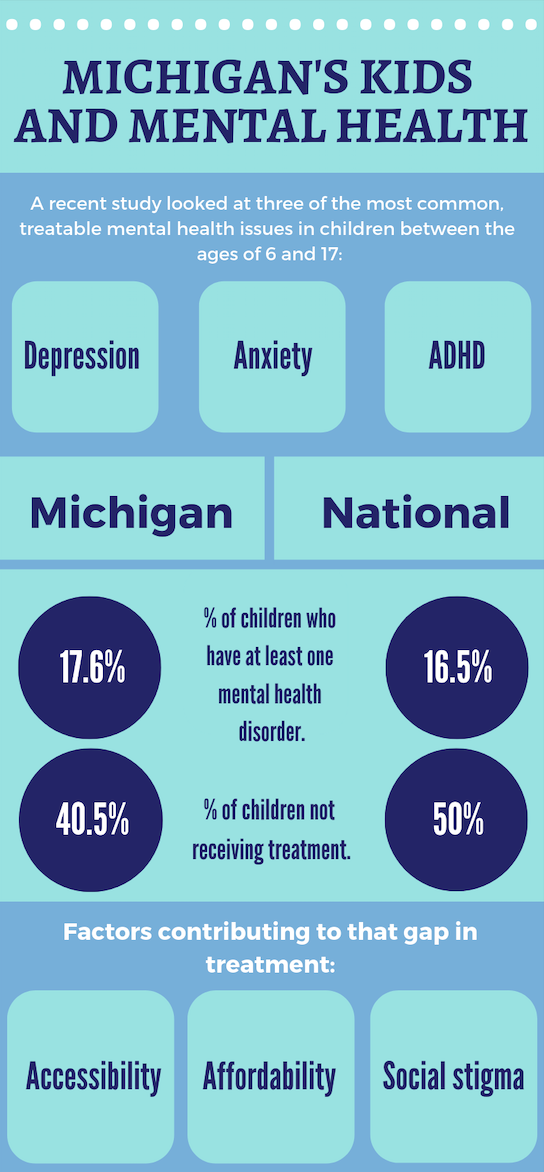The Health and Career Education Integrated Resource Bundles( IRPs )4 consist of learning results in the location of mental wellness. And the two-volume series, Teaching Trainees with Mental Health Disorders: Resources for Educators, focuses on eating conditions and anxiety. 5-6 Atkinson, M. & Hornby, G.( 2002). Psychological health handbook for schools. New York/London: Routledge. & Miller, L.D.( 2006 ). Reading,' riting,' rithmetic and relationships: Considering the social side of education. Exceptionality Education Canada, 16 (3), 149-192. The Kid and Youth Mental Health division of the provincial Ministry of Kid and Family Development has two initiatives that support mental health concerns. These initiatives are available to all school districts in BC. The FRIENDS For Youth curriculum was introduced to Grade 7 trainees in the fall of 2008.
* Roots of Empathy( www.rootsofempathy.org) is a programs that promotes emotional literacy and empathy in trainees, kindergarten through grade eight. In 2007/2008, the program reached 16,700 students in 668 class in BC. There are many resources for instructors that concentrate on kid and youth mental health( see sidebar for more ). Cheryl is a former Director of Trainee Providers in School District # 54 (Bulkley Valley),.
and former president of the BC Council for Administrators of Special Education. She currently works in her district as a primary school counsellor and teaches in the Special Education Assistant Program at Northwest Neighborhood College. Here's a look at the early days of psychological health services in schools and how they have actually evolved. Throughout the Progressive Period, numerous modifications were taking place in American school systems. Schools increased the number of days in an academic year, and registration numbers climbed up. With more students going to school, instructors recognized a greater need for attending to discipline problems.
Likewise throughout this time, school counseling ended up being a profession. In 1909, Clifford Beers, William James and Adolf Meyer developed the National Committee for Mental Health, which is now called Mental Health America. The committee aimed to improve mindsets towards mental disorder, and they worked to avoid and deal with mental health concerns.
Rumored Buzz on How Does Nicptine Affect Your Mental Health
CMHA assisted construct community university hospital and promote deinstitutionalization. Also throughout this time, school counselors concentrated on character problems and human advancement in addition to dealing with employment goals, and became referred to as guidance counselors. The employment of guidance therapists drastically increased, and behavioral conditions became a major field of research study and training.
In 1986, Congress passed the State Comprehensive Mental Health Solutions Strategy Act to promote neighborhood care, as well as integrate mental and physical health with education and social services for children with psychological disruptions. In 1992, legislation mandated the Kid's Mental Health Initiative to assist kids and families gain access to psychological health services through a team of therapists, instructors, good friends and others included with the household.
Also during this time, the Centers for Illness Control and Avoidance (CDC) recognized youth violence and suicide as a public health concern. Today's school systems face extraordinary difficulties, such as the effect of social media on the teenage mind. Schools likewise require ways to resolve the growing rates of depression, stress and anxiety and suicide amongst teens.
As an outcome, schools acknowledge the requirement to supply psychological health education and psychological services for trainees. Numerous states have increased financing for school counseling and have made psychologists part of the school staff. However, the majority of states do not mandate psychological health education, with the exception of New York and Virginia.
Some Known Incorrect Statements About How Did Zelda's Mental Health Affect F Scott Fitzgeralds Books
The goal is to educate children about mental health problems and teach them how to recognize symptoms in themselves and buddies before a crisis or disaster occurs. Psychological health professionals naturally want to get to the root of the problem and figure out the cause for increasing rates of mental health issues in teenagers.
Although psychological health issue can have various causes, here are 4 aspects that may be contributing to the psychological health epidemic and bad scholastic performance. The adolescent brain is not mature sufficient to make long-term choices. It's reasonable teenagers may feel overloaded when asked to pick a career https://transformationstreatment1.blogspot.com/2020/06/prescription-drug-abuse-treatment-in.html course or decide what college they wish to go to.
Teenagers feel the requirement to satisfy impractical expectations set by parents, schools and social media, which adds to anxiety https://www.google.com/maps/d/u/0/viewer?mid=1yOO3OEa4ZxyhNL2UBnXKgq9vjKDvrOZ2&ll=26.46875901419564%2C-80.09032&z=12 and anxiety. how does sleep affect mental health?. Teens invest far excessive time in front of a screen every day. According to a Kaiser Family Foundation research study, kids and teens spend nearly eight hours a day consuming media.

Teenagers also use social networks sites where they can publish confidential remarks about peers, which can be ravaging to an adolescent and cause self-confidence and relationship concerns. It seems technology is negatively affecting psychological advancement. An outstanding example of the impact of social media on a teen's mental health is the A&E documentary series "Undercover High." This series features adults who went to a high school undercover to find out about contemporary teenage life.
5 Simple Techniques For How Does Mental Illness Affect Physical Health
Due to the fact that students feel pressure to maintain their image on social media at all hours of the day, they relate their appeal with their self-worth. Students compare themselves to the ideal images they see on social media, and typically do rule out the reality behind the pictures - how does sleep affect your mental health. Many teenagers do not get sufficient sleep, which affects their psychological health and ability to perform academically.
They might keep up late texting pals or sharing YouTube videos. Other teens have over-packed schedules, restricting the quantity of time they need to sleep since they are too busy studying or taking part in after-school activities. When a teenager does not get adequate sleep, they may have difficulty managing their emotions.
A lack of sleep also makes it much more tough to take tests and believe seriously through issues. Many schools have tight budgets and might not focus on athletics (how does social media affect your mental health). For example, the typical physical education spending plan for U.S. schools is just $764 per school, according to the 2016 Shape of the Nation report.

Study individuals were between the ages of 16 and 19. Exercise is vital for both physical and mental health. Workout increases self-confidence, increases concentration and reduces signs of anxiety and anxiety, all of which assists improve scholastic efficiency. Kids and teenagers ought to get at least an hour of exercise every day, but it is typically not the case.
The Facts About How Does Mental Disorders Affect Health Uncovered
When a teen feels depressed or distressed, they may withdraw from peers and neglect their duties as a trainee. It might likewise be hard to focus on their studies. Here are a few ways mental health issues effect scholastic accomplishment. Trainees with mental health concerns might miss out on school due to feelings of anxiety, worry, despondence or other symptoms associated with a psychological health issue.